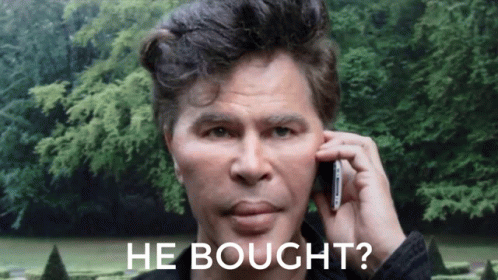Creator Monetization and NFT Use Cases l Carly Reilly @ Overpriced JPEGs
Useless Monkey Pictures or Life-Changing Technology? Find Out In This DOer Spotlight
GM web3 trailblazers!
Overpriced monkey pictures. That’s how the web2 world sees NFTs.
But is there any truth to this view? 🤔
To be completely honest, many NFTs are overpriced JPEGs because their main reason for existing is speculation and value extraction.
We’ve seen tons of over-hyped collections with promises of becoming the “biggest” metaverse and changing the world because that’s what speculators want to hear.
The truth is that NFTs are just a business tool. A technology you can use to build sustainable businesses that reward both you and your community—no hype or metaverse promises necessary. 🤷♂️
And now that everyone’s been less focused on floor prices, it’s given us an opportunity to learn about what does and doesn’t work when it comes to sustainable businesses—today’s main topic.
In today’s episode, we chat with Carly Reilly from Overpriced JPEGs about:
Why NFTs are an important part of our future 🌍
Choosing the right NFT business model for your community (it’s not what you think) 🪙
Exciting events happening at Overpriced JPEGs. Hint: Metamask is involved 🥳
Let’s go 👇
Tired of web2 social? Then make sure to check out Lens Protocol 👀
Why NFTs and Web3 Are a Necessary Step Forward For Our World
Humans are social beings and the point of humanity is connection. 🤝
We can coordinate with each other to build bigger things than we could alone. And it’s the reason we’re the dominant species.
Blockchain and NFTs are now allowing us to take our natural tendency to the next level, allowing us to coordinate in ways that we couldn’t have dreamt of a decade ago.
We don’t have to be just fans, followers, and audience members. It’s now possible to have ownership and impact in movements, projects, and people that we believe in.
And on the flip side, this technology can help us build tight-knit communities that result in sustainable business models where everyone wins.
But right now, we’re still early.
Most of the world doesn’t get NFTs or web3. It’s not because they haven’t heard good explanations for why we need them, it just hasn’t clicked yet.
They haven’t had that aha moment because most people aren’t building businesses on the internet.
They haven’t had to deal with Facebook-based businesses being shut down overnight for no apparent reason. And they don’t understand the control web2 corporations have over their online identities.
When it does click, though, they won’t be able to view this emerging technology the same way again.
But for all you web3 explorers, here’s how you can think about tokenizing your community with or without NFTs:
🟣 POP QUIZ
Why Hasn't Carly Launched a Speculative NFT Collection Yet?
A. She doesn't want to deal with the pressure of having token holders
B. She wants to build a bigger community first
C. She secretly hates NFTs
Find the correct answer at the bottom of this article. 👀
Creating in Web3 Doesn’t Mean You Need to Tokenize Your Community With a 10k PFP Collection
It’s true that in the last couple of years, 10k PFP collections with outlandish promises and roadmaps have been all the rage. Sure, some creators decided to run with 5k collections, but the promises were the same.
Carly shared that, because of how new the space was, it felt like there was no way to drop an NFT project without setting up some crazy expectations. Even if it was free it didn’t matter, people still had expectations around it.
But it’s pretty much our fault.
We created unreasonable expectations for holders in a bid to gain traction and mint out on launch day. And now we’ve seen the repercussions—rug pulls, creators turning over control to communities, crashing floor prices, etc.
In saying that, without early experimentation, we wouldn’t learn and improve. So there’s a fine line between learning through execution and having the patience to wait until you’re confident in your NFT business model.
Carly remembers watching other creators launch their collections in similar conditions. They were constantly having to keep token holders in the loop and felt like they owed token holders all their waking hours.
And that’s pretty much the reason why she chose not to tokenize her community.
Right now, if someone were to DM Carly late at night, she doesn’t feel the need to reply then and there. But if someone were to buy a token from her hypothetical collection she’d feel pressure to put token holders first at all times.
Instead, she wants to focus on Overpriced JPEGs and making it the best podcast for NFTs rather than being constantly available to fulfill token holder needs.
So kudos to Carly for knowing her vision and not launching an NFT for the sake of it!
But NFT collections don’t have to come with high expectations or activity levels. It comes down to what you’d like your NFTs to accomplish.
For example, Carly loves the idea of her podcast viewers getting POAPs and NFTs that show their affinity to the show as she can more easily reward those people.
At Web3 Academy we also have our own free NFT for completing the Web3 Rabbit Hole Course. It’s a cool way for participants to show that they’re involved in web3, without any extra expectations on our team.
But What’s the Right Move for Your Community?
Tokenizing your community with NFTs isn’t something that you should rush into.
In fact, most people who have launched collections don’t have an exit strategy or even think about what fits best with their community and personal preferences. They’re only thinking about the here and now.
But not you.
Here’s what to consider:
How Do You Want to Interact With Your Members?
If you know you’re good at building community and you’re happy to spend time in Discord chatting with people, tokenizing your time could be a good move.
For example, you could commit to answering questions and hosting community calls about your area of expertise 5 - 6 days a week. But this leaves you little time to add value in other ways or work on other projects unless you have help.
It’s all about considering what your community finds valuable and what you enjoy doing as a creator.
Do you want to build a DAO and generate value with thousands of strangers that are likely difficult to coordinate? Do you want to give people lifetime access and be responsible for their needs?
But what happens if you don’t want to be responsible for thousands of token holders?
You can:
Offer your community a proof-of-attendance or proof-of-completion NFT that allows you to reward token holders later down the line without immediate pressure to deliver value
Blend web2 and web3 by using NFTs to represent monthly or annual subscriptions that have no speculative aspect but still help you connect with your community
Go the social token route as Matt Espinoza explained on a recent DOer Spotlight. While these still have a speculative aspect, they’re seen more as a way to support an individual.
You could also launch a smaller high-ticket collection like Zeneca.
He didn’t know how to prioritize his time as more people started reaching out to him for help. So he launched the 333 Club, which if you’re a holder, you have access to a Calendly where you book an hour of his time as many times as you want.
In my opinion, this is still a huge commitment and there should be some sort of call limit.
But at the end of the day, it’s about finding the balance between what your community wants and what you can offer.
What If You Want To Use Your NFT Launch As Your Community Builder?
This strategy is the typical 10k PFP collections that we’ve seen over the last few years.
Again, there’s nothing inherently wrong with launching a 10k NFT collection. It doesn’t even have to be 10k. It could be 1k, 100k, or anything in between.
It’s more about how creators go about setting expectations.
If you’re happy to spend most of your day sharing knowledge in Discord and that’s what your community wants, add it as a utility. If you’d rather focus on creating the best newsletter in your niche, make sure that your token holders know that’s your priority.
You don’t have to offer what your competitors or the general NFT space do, you just have to meet your community’s expectations.
But if you want to go the speculative NFT route, there’s one aspect you must consider before you launch your collection: what is your exit strategy?
Unless you want to be labeled a rug puller for simply retiring, there must be a mechanism that ensures your NFTs have a finite lifetime.
Here are two ways to do that:
Make members burn NFTs to obtain their utility. For example, a tattoo artist makes customers burn their NFT to receive their tattoo. This gives the artist a clear exit strategy while also potentially increasing the price of the unburned NFTs due to increased scarcity.
Use time limits. This is a simple yet powerful strategy that collections like VeeFriends and Proof Collective use. It negates lifetime access and ensures there are future opportunities for revenue.
Above all, you never know what will happen in your business so it’s important to not box yourself in with lifetime-access NFTs.
Overpriced JPEGs x MetaMask
Who says you need to have an NFT collection to be making moves?
Earlier this year, Carly teamed up with MetaMask as they sponsored a web3 documentary that she shot in Puerto Rico.
While Puerto Rico has gotten a lot of coverage regarding crypto and blockchain, it’s been almost exclusively around it being a tax haven. T
hey have something called Act 60, which basically means that if you move there and become a resident of the island, you don’t have to pay capital gains tax.
So if you’re someone that trades crypto it’s obviously appealing. As a result, most news has focused on crypto colonizers driving up rent prices which hurts people who earn local wages.
But the locals themselves aren’t against blockchain and crypto with many locals using the technology for good.
The island is a natural fit for blockchain and NFT adoption because you have an incredibly artistic community. Famous musicians, such as Bad Bunny and Daddy Yankee, are Puerto Rican and there are entire communities with murals on every street corner.
They even have amazing technical and engineering schools!
But unfortunately, they also have a corrupt government situation that came to light after Hurricane Maria.
Since that disaster in 2017, there’s been a lack of transparency around government funding and management. So locals have turned towards blockchain adoption to bring greater transparency and improve human coordination to the island.
Some highlights of the documentary include:
Juan Salgado: a world-renowned tattoo artist who will only tattoo people who hold one of his NFTs so that he has more time for other creative activities
Christina (aka Art by Bonesy): who creates paintings that can be combined with AR
And many others
But one of the best parts about the documentary is that for every view it gets between now and November 8th, $1 will be donated to hurricane relief efforts on the island (with a $10,000 cap).
Since Hurricane Maria, the island has been struggling with its corrupt government and subsequent storms and natural disasters.
Tons of people are still struggling without food and power, but you can help.
👀 If you watch the documentary right now, a dollar will be donated to this awesome effort. Plus you’ll get to see web3 adoption in the real world!
🟣 SOCIALS
Tweet of the Week
More Than Just Overpriced Monkey Pictures: Celebrating Overpriced JPEGs’ 1-Year Anniversary the Web3 Way
As we said, dropping a 10k PFP collection isn’t the only way to build a community.
For the one-year anniversary of Overpriced JPEGs, Carly decided to do something a little different. She decided that she’ll airdrop her top supporters an NFT that they can redeem for a bottle of Overpriced Jin (yes, we spelled it correctly!).
👉 If you’re interested in doing your own community alcohol drop, Carly’s doing hers with Liquid Collections.
This is a cool and simple use case for creators to reward their fans. Honestly, even businesses could do this as a way to thank their clients and send them a gift.
Your top fans now have something digital in their wallet to show off to their friends (as long as you don’t make them burn it). Plus they get a physical product (in this case gin) that they can enjoy.
One of the things most exciting about phygital tokens is inventory management. By gifting in this manner you only produce the exact amount of products ordered, reducing waste.
Talk about a win for your wallet and the environment!
The biggest challenge with this, though, is collecting wallet addresses. Carly decided to review community members manually to avoid spammers, but this obviously takes a ton of time.
It’d be faster if she used a CRM with web3 functionality, such as SalesForce. In saying that, human intuition is a powerful tool, especially when you’re figuring out who your top community members are.
Our advice? Start collecting wallet addresses ASAP—even if it feels tedious. When fully-functional web3 CRMs arrive, you’ll be able to interact with your community like others wish they could.
But it just goes to show that, you don’t have to launch a paid NFT collection to bring your community together. Heck, you don’t even have to generate revenue from NFTs to use them as a community builder.
It’s all about fair value exchange and how you facilitate that is up to you!
🟣 FOR THE DOERS
READ
Check out Kyle's series finale on NFT business models: NFT Tokenized Communities Part 3: The Ultimate How-to Guide for Creators.
WATCH
Make sure to watch Carly's documentary before November 8th so we can help Puerto Ricans in need. And if you're too late, watch it anyway! 🥳
JOIN
Head over to the Web3 Explorers Club to join November's community-cultivated mastermind!
🟣 POP QUIZ ANSWER
The correct answer is A. She doesn't want to deal with the pressure of having token holders ✅










